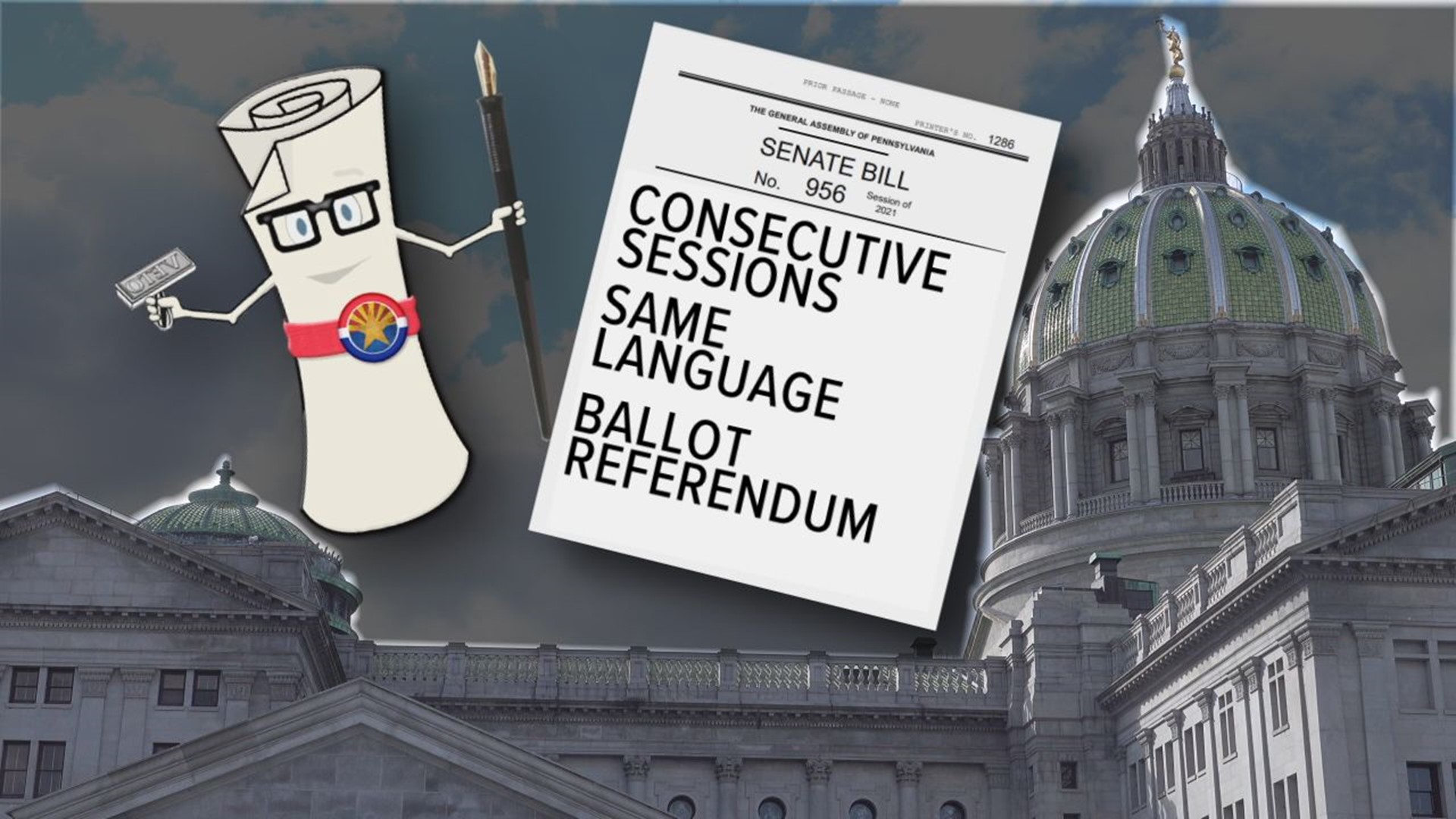HARRISBURG, Pa. — At the Pennsylvania Capitol, two separate committees hosted heated, partisan debates on controversial topics this week.
On Monday, the House Liquor Control Committee discussed a bill which would privatize the currently state-run liquor system in the commonwealth. On Tuesday, senators voted on abortion legislation which would limit elective abortion procedures and eliminate public funding for them.
Both pieces of legislation would normally pass the republican-controlled General Assembly and be vetoed by democratic Governor Tom Wolf immediately upon arrival to his desk. However, these two bills – HB2272 and SB956 – will never meet Wolf's pen.
They are considered constitutional amendment bills, and they have become Pennsylvania republican lawmakers' method during the 2021-22 session to get around Wolf's ability to decline legislation that he does not support.
"This is a product of an executive branch which refuses to work with the legislature [and] which ignores the will of the people," State Rep. Carl Walker Metzgar (R-Somerset) said prior to the Liquor Control hearing Monday.
Republicans view constitutional amendments as a way of giving voters more of a say in the legislative process, which is lengthy. In order for citizens to have a say, the bill has to pass the House and Senate in consecutive sessions with the same language and be properly advertised in newspapers across the commonwealth. Only then can it appear as a ballot referendum during an election.
The earliest that a constitutional amendment legislation passed in 2021-22 could appear on a voter's ballot is the May 2023 primary election.
"It gives the citizens a great opportunity to get the government they want," said State Rep. Frank Ryan (R-Lebanon). "Otherwise, you have 12.8 million people electing a dictator."
Ryan is among the leading republicans pushing more power to the people, and in the 2021-22 session, he's getting his wish.
Lawmakers have proposed 73 constitutional amendments since the start of the 2021 calendar, 60 of those coming from Republicans. In the previous 2019-20 session, there were 69 constitutional amendments for the entire two-year term.
The concept isn't accepted by everyone.
Khalif Ali, the executive director of the good-government advocacy group Common Cause PA, believes state republicans are going against the checks-and-balances system which voters chose and cashing in on their agenda in a different way.
"Here's a concern: we can't get it done through traditional means, so we're going to do an end-around," Ali said. "It's unethical."
Among the issues, Ali believes, is that while republicans are framing the constitutional amendment as a choice for voters, lawmakers are actually choosing for them instead.
"The General Assembly is allowed to select the issue, select how it's framed and then ask the people to vote on that," she said. "That's not necessarily a democratic process."
Some in the legislature believe that if republicans are going to legislate around the governor, then the rules should change to make it more fair. State Reps. Ryan Bizzarro (D-Erie) and Pam Snyder (D-Greene) are proposing to have all constitutional amendment bills be approved by a two-thirds majority vote.
"That gives the legislature power that was not intended for citizens," Rep. Ryan retorted, calling it a bad idea. "it's taking away from citizens. It's a virtual guarantee that nothing will ever change."

